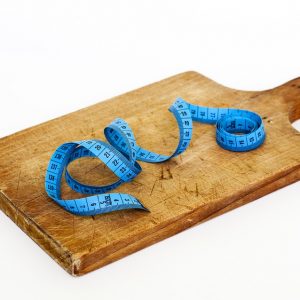
In a fast-paced culture where seemingly simple concepts such as a nutritious diet and regular exercise are anything but, there are no shortages of fad diets. From sedentary work lives fueled by coffee to a busy family schedule, to an increased cost of fresh food and produce to the attractiveness of inexpensive unhealthy convenient options, obtaining that balanced lifestyle might seem more difficult to some than catching a fluffy pink unicorn dancing on a rainbow. Thus there will most likely always be a place for the fad diet.
Over the years the fad diet has appeared in many incarnations. Short-term cleanses, avoiding carbs as well as use of juicers, supplements or natural products have all received public attention. For example, the HCG diet has become popular again in the past couple of years. Participants limit their food intake to less than 500 calories a day over two meals. This routine is then supplemented with daily doses of HCG. HCG stands for human chorionic gonadotropin which is a hormone involved in pregnancy.
From as far back as 1975, dermatologists have reported that the HCG diet results in not just shedding of pounds, but shedding of hair as well1–4. The cause of the hair loss has not been definitely proven but as post-partum shedding is relatively common5,6, the HCG hormone has been suspected4. Moreover as there are many potentially serious side effects associated with the HCG diet, the FDA was quick to issue warnings and inform consumers that many of the HCG products being sold as part of the diet are illegal. The HCG diet however is not the only trend with the potential to affect your hair. Starvation and extreme calorie limiting practices in general have also been associated with shedding6–8.
Overall, weight loss can be a part of developing a healthy lifestyle or positive self-image although setting realistic goals is important. To proceed safely and lower your risk of complications, talk with your doctor to create a plan best suited to your individual needs and situation.
Article by: Dr. J.L. Carviel, PhD, Mediprobe Research Inc.
References
- Krusinski PA. Telogen Effluvium Secondary to Weight Loss and Therapy With Chorionic Gonadotropin. Arch Dermatol. 1976 Apr 1;112(4):556.
- Trozak DJ. Letter: Hair loss after therapy with chorionic gonadotropin. Arch Dermatol. 1976 Jul;112(7):1035.
- Goette DK. Alopecia in Crash Dieters. JAMA J Am Med Assoc. 1976 Jun 14;235(24):2622.
- Goette DK, Odum RB. Letter: Profuse hair loss. Arch Dermatol. 1975 Jul;111(7):930.
- Dawber RP, Connor BL. Pregnancy, hair loss, and the pill. Br Med J. 1971 Oct 23;4(5781):234.
- Strumia R. Dermatologic signs in patients with eating disorders. Am J Clin Dermatol. 2005;6(3):165–73.
- Thappa D, Kaimal S. Diet in dermatology: Revisited. Indian J Dermatol Venereol Leprol. 2010;76(2):103.
- Rushton DH. Nutritional factors and hair loss. Clin Exp Dermatol. 2002 Jul;27(5):396–404.












